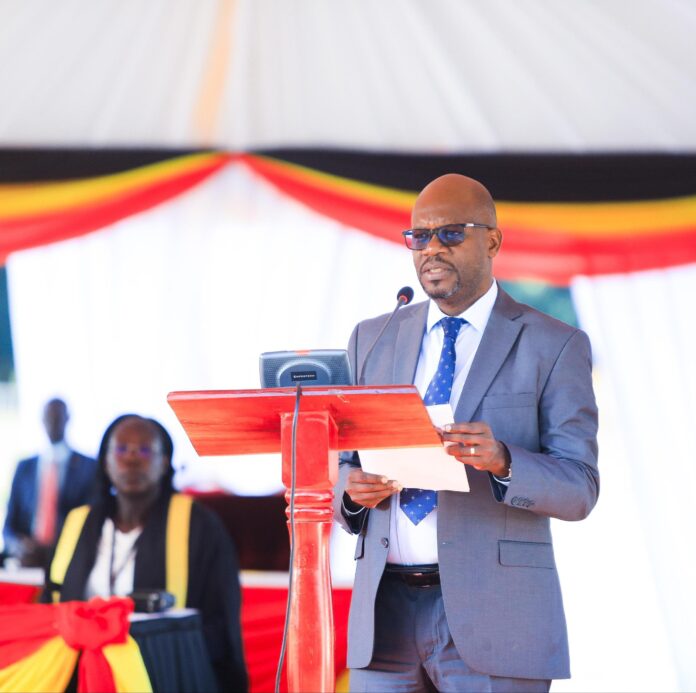The 11th parliament of Uganda, sitting in Gulu City, has granted leave to Richard Lumu, the Democratic Party MP for Mityana South, to present a private member’s bill, allowing all opposition MPs to participate in the election of their Leader of Opposition and Chief Opposition Whip.
Currently, these positions are filled by the opposition party with the biggest number of MPs, often leading to discontent among other opposition members.
During the parliamentary session held in Gulu on Thursday, August 29, 2024, Lumu expressed his concerns, questioning why certain democratic principles apply to other leadership roles but not to the opposition’s key figures.
“If Catholics can vote for the Pope, Ugandans can vote for a President, and MPs can elect a Speaker, why should the Leader of Opposition and Chief Opposition Whip be exempted from these democratic processes?” Lumu asked.
Speaker Anita Among addressed the chamber, acknowledged Lumu’s proposal and encouraged MPs to consider their options.
“Much as we are sitting in Gulu, this is a normal sitting. There is no fight here; the law isn’t made for one person. You can reject Lumu’s bill on the second reading if you wish, but we shouldn’t deny a member his right, which is enshrined in the constitution,” Speaker Among said.
Supporting Lumu’s motion, Michael Kakembo of the National Unity Platform (NUP) emphasized the importance of unity within the opposition.
“There is nothing wrong with opposition MPs voting for their own leader; empowering MPs to elect their leaders would foster a culture of respect and collaboration rather than a perception that the Leader of Opposition owns all Opposition members,” Kakaembo said.
Kakembo further stated that they have seen many times in Parliament where the Leader of Opposition thinks that all opposition belongs to his party. He referred to past instances where the Forum for Democratic Change (FDC) dominated the opposition narrative.
“Let us vote for our leader so that he will respect us, unite us, and make us stronger,” noted Kakembo.
The second reading of Lumu’s bill is anticipated to spark further discussions on the role and representation of opposition parties within Parliament. The leader of opposition in Uganda is the leader of the largest political party in parliament that is not in government.
The LoP appoints and heads an alternative shadow cabinet whose duty is to challenge and influence governmental actions and legislation on the floor of parliament.















